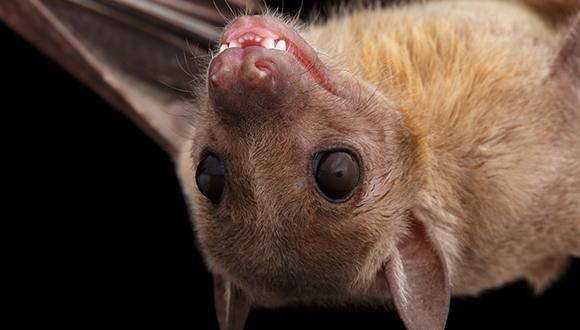Language school for bats
New study proves language acquisition is not limited to human beings
A new Tel Aviv University study finds that young bats adopt a specific "dialect" spoken by their own colonies, even when this dialect differs from the bat "mother tongue."
Researchers Dr. Yossi Yovel of the School of Zoology and the Sagol School of Neuroscience at TAU's George S. Wise Faculty of Life Sciences and his students Yosef Prat and Lindsay Azoulay say that the study offers insight into the evolutionary origins of language acquisition skills, calling into question the uniqueness of this skill in humans. The study was published today in PLoS Biology.
"The ability to learn vocalizations from others is extremely important for speech acquisition in humans, but it's believed to be rare among animals," Dr. Yovel says. Reseachers had believed that this is what makes human language unique.
"The most common animal models for this 'vocal learning' are songbirds, which learn songs from specific tutors. Bird researchers usually emphasize that a bird learns to sing from one parent, but we have shown that bats listen and learn from an entire colony of several hundred bats, not just from their parents.
"In other words, young bats pick up the dialect vocalized by their surrounding roost-mates."
The music of childhood
For the research, the team raised 14 pups with their mothers in three different colonies. In these artificial colonies, the scientists used speakers to play three specific subsets from a collection of recordings of natural bat vocalizations. The researchers exposed the bats to the recordings over a period of one year, until the young bats reached adulthood.
"The pups were raised with their mothers and could communicate with them. But even though they were exposed to their mothers' 'normal' dialect, each group instead developed a dialect resembling the one of the crowd it was exposed to through our recordings," Dr. Prat says.
"The difference between the vocalizations of the mother bat and those of the colony are akin to a London accent and, say, a Scottish accent," Dr. Yovel explains. "The pups heard their mothers' 'London' dialect, but also heard the 'Scottish' dialect mimicked by many dozens of 'Scottish' bats. The pups eventually adopted a dialect that was more similar to the local 'Scottish' dialect than to the 'London' accent of their mothers."
Next, the researchers will examine how the acquisition of a new dialect influences the ability of bats to integrate into foreign colonies. "Will they adopt the local dialect or will they be rejected by the group? Or maybe the local colony will change its dialect to adopt that of our bats," Dr. Yovel says. "There are many interesting avenues yet to explore."






